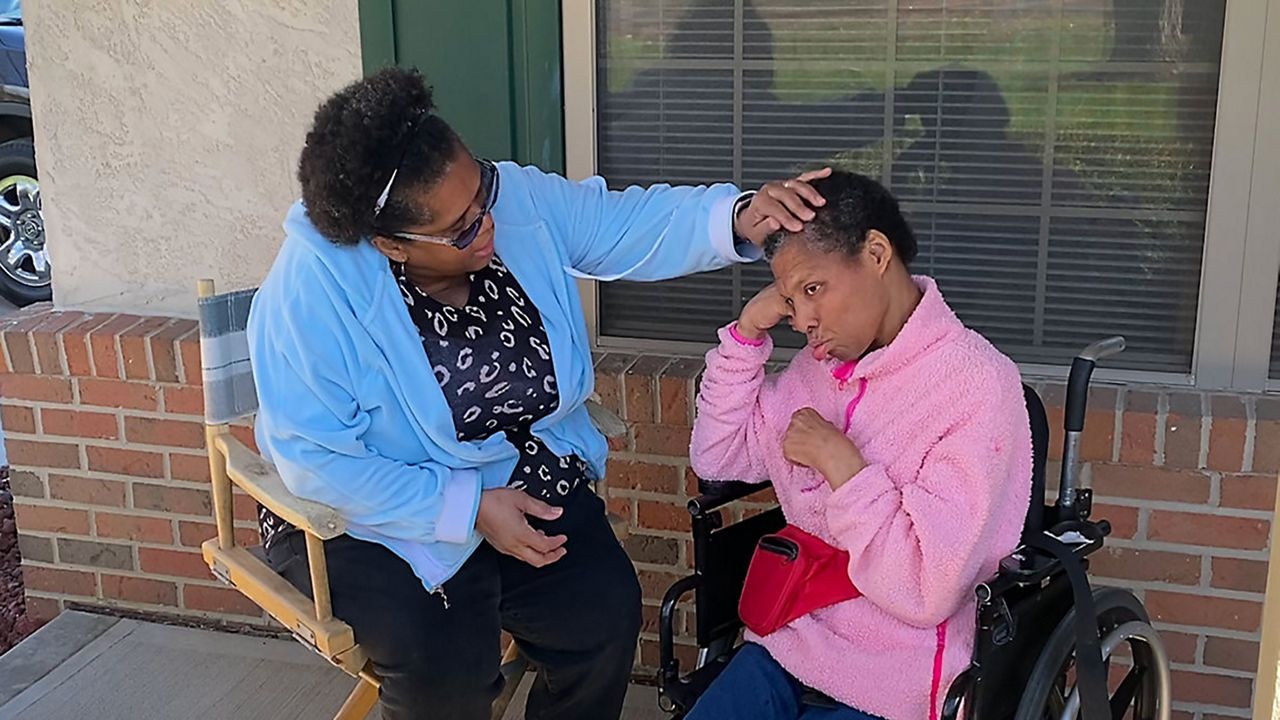COLUMBUS, Ohio — Cathy Mason-Jordan has always cherished time with her sister.
“We're just a musical family. And she loves music. She loves to dance and she loves to sing, so we would just sing,” said Mason-Jordan about her sister, Caryl.
Recently, Mason-Jordan helped move, Caryl, now 51, into her new assisted-living facility where she receives daily care. Caryl is non-verbal, uses a wheelchair and shares her home with another resident in Columbus.
Mason-Jordan said it's been an emotional roller coaster for her family ever since Caryl left home for specialized care at the age of 6.
“She had been told that the place she was going to (would) help train her, give her skills so she would be able to be more independently functional and that didn't happen. And so it was always very tragic for my mom every time we would go to visit her because we could see that she was not progressing,” Mason-Jordan said.
Over the years, Caryl has learned to communicate through sign language, but with her sister now living in Georgia, control over her health care has been frustrating.
Four years ago, Mason-Jordan teamed up with nonprofit Disability Rights Ohio and eventually settled a class-action lawsuit against the state over access to community services.
The court documents 700 state-funded waivers are available through Medicaid, and the families of people with disabilities have the right to choose health care services either at an institution or in the community.
“We brought this lawsuit because back in 2016 there were very long, slow-moving waitlists for people to move out of these institutions. The median wait time back then was almost 14 years. So if you were living in one of these facilities and wanted to live more independently in a community, you had to wait a really long time,” said Kevin Truitt of Disability Rights Ohio.
“You don't have a lot of freedom. Again, you don't have the choice to say, 'I don't want this person working with my child.' Or you know, 'I don't want this agency working with the child,' which is different with supported living. So it's been a blessing for us to have that change in her life,” Mason-Jordan said.
Mason-Jordan continues to advocate for the cause and has this advice to families experiencing a similar situation:
“Keep pushing. Don't get discouraged. Our loved ones have the right to have as wonderful a quality of life as we do. And we have to stand for that,” Mason-Jordan said.
For more information click here.
